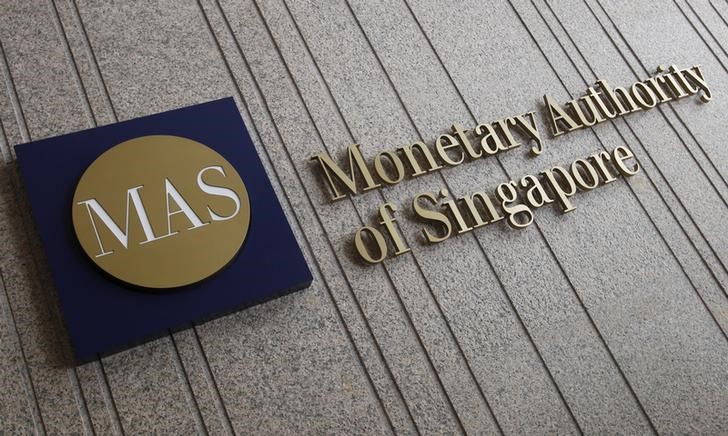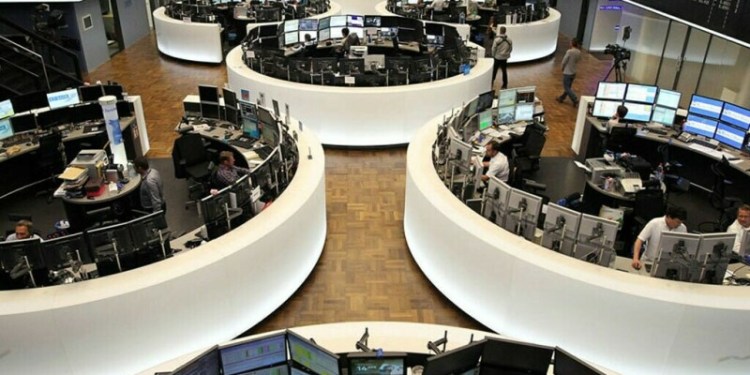 © Reuters. File photo of the logo of the Monetary Authority of Singapore at its building in Singapore
© Reuters. File photo of the logo of the Monetary Authority of Singapore at its building in SingaporeBy Fathin Ungku
SINGAPORE (Reuters) – Singapore’s central bank is likely to tighten monetary policy again in October, a Reuters poll of economists found, although the change is expected to be modest as policy makers worry about the fallout from escalating Sino-U.S. trade tensions.
Nine of 15 analysts said their baseline expectation is for the Monetary Authority of Singapore (MAS) to tighten its exchange-rate based policy at its semiannual review, expected in mid-October. The remaining analysts predict the central bank will hold fire mainly due to the trade worries.
The poll was conducted between Sept. 24 and Sept. 27.
The MAS manages monetary policy by making changes to the exchange rate, rather than interest rates, letting the Singapore dollar rise or fall against the currencies of its main trading partners within an undisclosed policy band based on its nominal effective exchange rate (NEER).
The nine analysts expect the MAS to tighten policy by slightly increasing the slope of the Singapore dollar’s policy band, leaving its other two policy levers – the mid-point and width of the band – unchanged.
The central bank tightened policy for the first time in six years in April also by adjusting the slope.
Mizuho economist Vishnu Varathan said he was expecting “nothing too sexy, just more of the same”, referring to another slight steepening of the slope.
“The MAS will be very wary of the risks from the trade war.”
U.S. tariffs on $200 billion worth of Chinese goods kicked in on Monday, prompting Beijing to retaliate with additional tariffs on $60 billion of U.S. products, the latest escalation of a trade spat between the world’s two biggest economies.
China is Singapore’s biggest export market.
Core inflation currently stands at 1.9 percent, near the top of the central bank’s expected 1-2 percent range for 2018. Some analysts said any tightening would be designed to keep price pressures in check.
“We expect growth to slow and that trade tensions is going to be a problem so I think that they (the MAS) will err on the side of caution,” said Capital Economics economist Krystal Tan, one of the six surveyed economists who expects no change to policy.
Fusion Media or anyone involved with Fusion Media will not accept any liability for loss or damage as a result of reliance on the information including data, quotes, charts and buy/sell signals contained within this website. Please be fully informed regarding the risks and costs associated with trading the financial markets, it is one of the riskiest investment forms possible.
Source: Investing.com


























